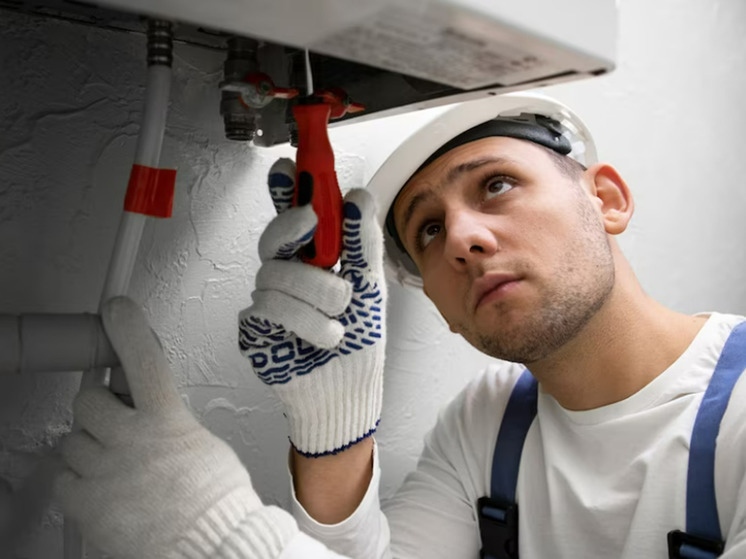House owners with old equipment may be required to replace it at their own expense
After the recent tragedy in Balashikha, where several people died and dozens were injured as a result of a domestic gas explosion in a high-rise building, people started talking, as expected about “organizational conclusions” — what can be done at the regulatory level to minimize the likelihood of recurrence of such disasters.

Among the proposals are the mandatory installation of gas detectors with automatic shutoff at the entrance to the kitchen of each apartment and the complete decommissioning of outdated gas appliances. So far, gas supply organizations have not officially spoken about any urgent measures of this nature. Nevertheless, in at least several regions of Russia, including the Moscow region that suffered this time, employees are preparing to take such measures.
“You don’t have to reinvent the bicycle,” a specialist from the design department of a gas distribution company in the Yaroslavl region told MK. — Apartment buildings will most likely be brought closer to the standards of the private sector. And private owners can be completely checked for compliance with modern standards and, if they do not comply, refuse service.
Both of these ideas have been discussed in gas distribution organizations for several years, have been repeatedly “reported” to the regional level and to Moscow, and are awaiting a political decision, he noted interlocutor «MK».
The simplest and therefore most likely solution is to oblige apartment owners to install gas analyzers with cut-off valves, already standard for the newly gasified private sector, at the entrance to the room where gas equipment is located (usually a kitchen).
According to the expert, the cost of a set of equipment — the gas analyzer itself and the shut-off valve connected to it by low-current wiring at the entrance to the apartment network — is within 10 thousand rubles.
“There is a cheaper option without a valve, but this is a half-measure,” says the engineer. — A modern solution automatically turns off the gas supply when the threshold concentration is exceeded. The usual ball valve at the inlet is, of course, retained; it can be closed manually at any time. Unfortunately, this equipment has not yet been installed in many private houses.
In “one-story Russia” gas analyzers are not yet installed everywhere: many private sector houses were equipped with main gas in Soviet times or in subsequent decades. There are once acceptable, but now “canceled” solutions: for example, gas injectors built into old brick stoves.
“They installed this before because it’s convenient — there’s no fuss with hydraulics, boilers, radiators,” explained a representative of the gas distribution network. — According to current standards, they do not pass due to the risk of cracks in the chimney and gas accumulation in the cavity of the stove. If there is a solution, then we will go to all the houses and turn off the gas to everyone who keeps such devices until they are rebuilt.
Finally, another likely solution is an increased emphasis on regular gas network maintenance and inspection. Residents of gasified private houses know: the law requires annual maintenance, for which the owner of the home network pays a service organization. Most often this is the gas distribution company itself, but not necessarily. There are private companies that charge less.
“Apartment buildings also have maintenance, but there are two major problems with it,” noted MK’s interlocutor. — First: the customer is the management company, not the owners, so no one living in the house knows that this maintenance is being carried out at all. People are accustomed to not being interested in the condition of the gas network.
The second problem is a consequence of the first: apartment owners and residents, not knowing anything about maintenance regulations, avoid opening the door to gas workers for inspections. “They send it everywhere,” complains an engineer at a gas distribution company.
Finally, the situation could be improved by a complete rejection of gas stoves and water heaters of old designs that do not have a so-called gas control, which shuts off the supply in the absence of combustion, suggested the interlocutor of MK.
Meanwhile, following the results of the tragedy in Balashikha, the state is still beginning to turn towards the listed measures. Thus, the State Duma Committee on Construction and Housing and Public Utilities has already proposed introducing mandatory installation of gas leak detectors in apartments. And the fines for those who refuse to be allowed into the apartment are planned to be increased fivefold, media reports citing deputies.
As for the free or preferential replacement of gas stoves and other outdated equipment — alas, there is no such program in the projects .


